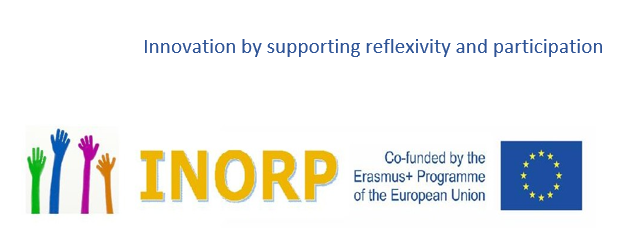
10. Module sections
10.2. Section 2: ethical considerations in participative research
Aim: Participatory approaches to research demand a heightened level of attention given to ethical issues. This section prepares for the dilemmas that have to be faced in this line of research and for the required competences in addressing power issues.
| Theme | Topic | Guiding questions |
| Ethics and law |
Legal obligations and constraints on research approaches |
In which areas does my research project touch on How am I prepared for dealing with possible discrepancies and conflicts between these frameworks? |
|
Ethics and |
Ethics and interests: Research is not limited to “recording” existing conditions of reality but has the purpose of questioning their Participative research is therefore likely to encounter conflicts regarding |
What interests does my proposed research project imply / express? On “whose side” do I stand with |
|
Benefits of upholding ethical |
Knowledge production value in different contexts and their interrelationship: |
What are the declared, what are the hidden outcome objectives of my research project? Which conflicts may arise from the incompatibility of objectives in the different context scenarios? What are my primary value objectives? |
Resources:
Banks, S., Armstrong, A., Carter, K., Graham, H., Hayward, P., Henry, A., Holland, T., Holmes, C., Lee,
A., McNulty, A., Moore, N., Nayling, N., Stokoe, A., & Strachan, A. (2013). Everyday ethics in community-based participatory research. Contemporary Social Science, 8(3), 263–277. https://doi.org/10.1080/21582041.2013.769618
Biesta, G. (2011). The ignorant citizen: Mouffe, Rancière, and the subject of democratic education. Studies in Philosophy and Education, 30 (2), 141–153.
Forbat, L. and Hubbard, G. (2015) ‘Service user involvement in research may lead to contrary rather than collaborative accounts: findings from a qualitative palliative care study’, Journal of Advanced Nursing, 72(4): 759–69.
Goldstein, L.S. (2000) ‘Ethical dilemmas in designing collaborative research: lessons learned the hard way’, International Journal of Qualitative Studies in Education, 13(5): 517–30.
Iphofen, R. (2011). Ethical decision making in social research: A practical guide. Basingstoke: Palgrave Macmillan.
Minkler, M., Fadem, P., Perry, M., Blum, K., Moore, L., & Rogers, J. (2002). Ethical dilemmas in participatory action research: A case study from the disability community. Health Education and Behaviour, 29(1), 14–29.
Rowan, D., Richardson, S. & Long, D. D. (2018). Practice-informed research: Contemporary challenges and ethical decision-making. Journal of Social Work Values & Ethics, 15(2), 15-22